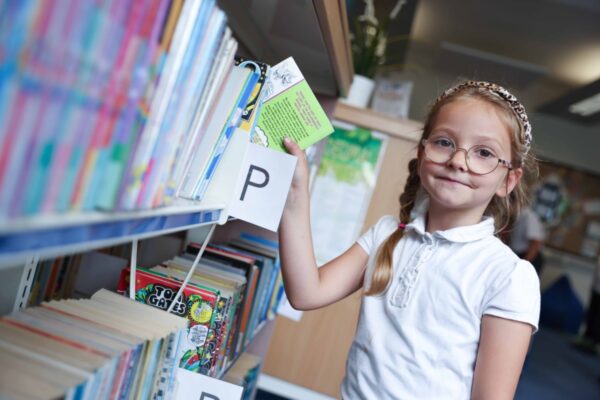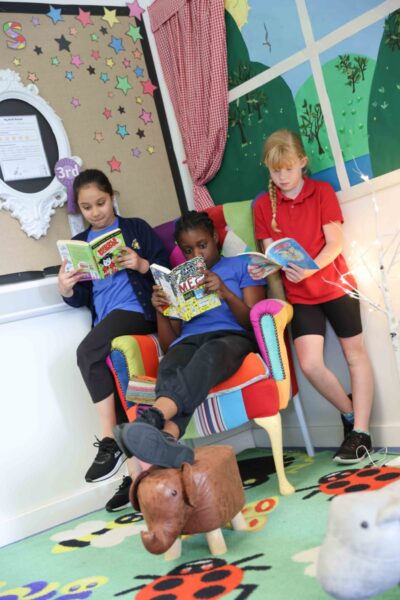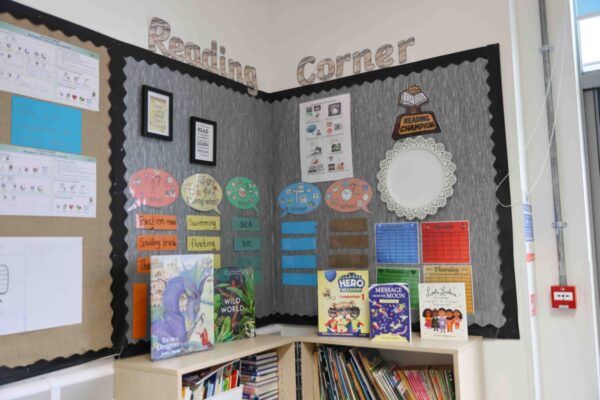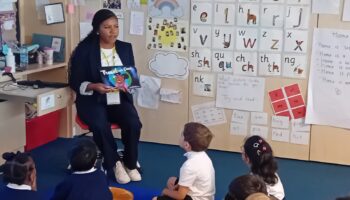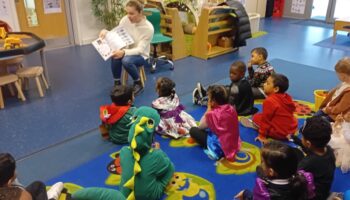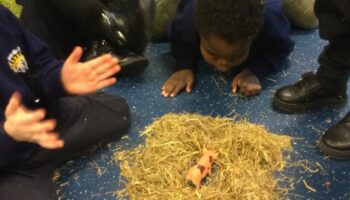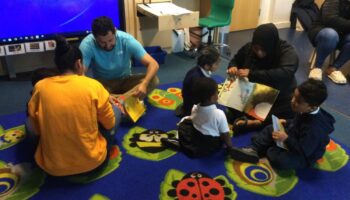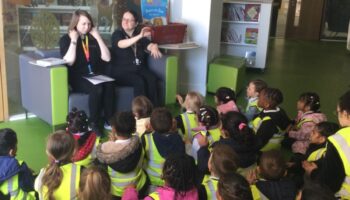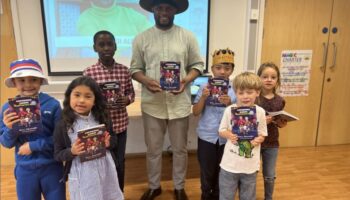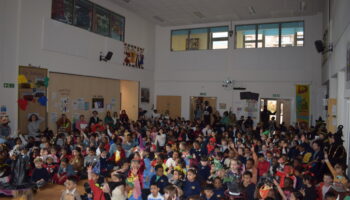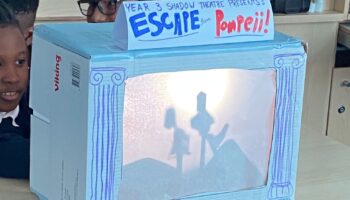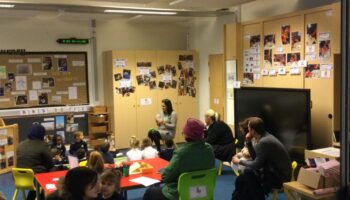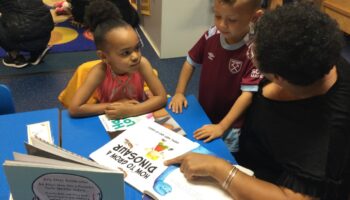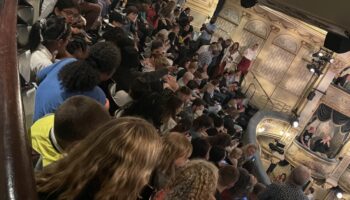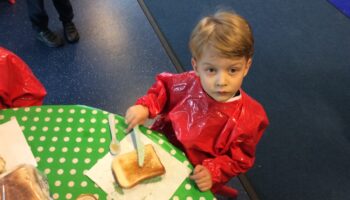Intent
At Keir Hardie Primary School we value reading as a key life skill and we are dedicated to enabling all our children to become lifelong readers and have a love of reading and literature. We view everything as an opportunity for reading, no matter how small. Reading is at the heart of the whole school curriculum, and embedded across all subject areas
Our teachers are highly skilled at teaching reading both from the early stages through to the fluent competent reader.
Teachers model the joy and pleasure of reading on a daily basis. We recognise that mastery in phonics is fundamental to children being able to access a broad range of fiction and non-fiction texts, across the curriculum. We aim to achieve this by teaching phonics systematically to address the needs of all learners. Within our context, ensuring children have cultural/global capital and experiences to become engrossed and immersed in reading is vital.
Teachers instil a love and passion for reading. Our engaging book areas, high quality texts, world book days, mastery reading through reading gladiators, daily reading for pleasure sessions are just a part of what our enriching reading curriculum offers.
We firmly believe that as teachers if we give children the right skills alongside the right books we can instil a love of reading that will foster lifelong readers.
‘If you don’t like reading it’s just because you haven’t found the right book.’
Implementation
To achieve our Intent, Our Curriculum is well sequenced and coherent to ensure that pupils have opportunities to recap and deepen their understanding. The curriculum is designed to develop a love of books, creating lifelong readers
Reading comprehension is the ability to read a text and understand its meaning. The National Curriculum divides reading up into two closely linked skills: word reading and comprehension. Word reading is the name given to recognising the words on the page or screen. In school, phonics is often used to help children with this part of reading. But this is only half of the story – to make sense of what they’re reading, a child needs to be able to understand the words. This is called comprehension.
Comprehension skills start from EYFS, where children orally discuss the stories which they have listened to. Alongside the phonics programme, children have extensive exposure to high quality books that ensure they encounter rich and varied vocabulary. In reception and Year 1, we use Talk Through Stories and Take One Book to teach comprehension beyond the phonics programme.
Once children can read accurately and fluently (which we teach through RWI Phonics), we teach reading and writing as separate subjects.
Reading is taught through ‘Take One Book’ reading lessons (produced by Just Imagine), pupils study real books by famous or familiar authors carefully selected to challenge and engage the children, whilst understanding where their reading needs and interests lie. In doing so, the pupil’s reading stamina, interest and skills improve significantly.
As part of their reading lessons, pupils are explicitly taught core reading skills such as retrieval, inference, prediction, summarising, deciphering unfamiliar words and exploring the author’s use of language and format. This allows them to access increasingly more ambitious reading materials beyond their expected reading level, imbuing them with the in-built skills they will need to access challenging texts in future years and adult life. Additionally, pupils spend reading lessons delving deeper into the characters, genres, contexts and themes of the books that they read.
The Take One Book units all have the following structure:
Hook – to engage the children ahead of introducing the text
Orientation – to activate prior knowledge, build background knowledge and introduce key vocabulary
First encounters – includes reading the text, exploring ideas, checking understanding and exposing thinking
Digging deeper – refining a response and expanding thinking
Review and reflect – including discussing the relevance of the book to the wider world
Wider learning opportunities (this may run throughout the unit or at the end)
Impact
-
The impact of Reading success in our school is measured through the following:
- Pupils will be able to decode and recognise enough sight words at the end of their Key Stage 1 programme of study to be able to confidently and fluently read a text at their level
- Pupils of all abilities will be able to succeed in all reading lessons
- Pupils will enjoy reading across a range of genres
- Once children have progressed through our chosen SSP programme, pupils will use a range of strategies for decoding words, not solely relying on phonics
- Pupils will have a good knowledge of a range of authors
- Pupils will be ready to read in any subject in their forthcoming secondary education
- Parents and carers will have a good understanding of how they can support reading at home, and contribute regularly to home-school records
- The % of pupils working at ARE within each year group will be at least in line with national averages.
- The % of pupils working at Greater Depth within each year group will be at least in line with national averages
- There will be no significant gaps in the progress of different groups of pupils (e.g. disadvantaged vs non disadvantaged)

